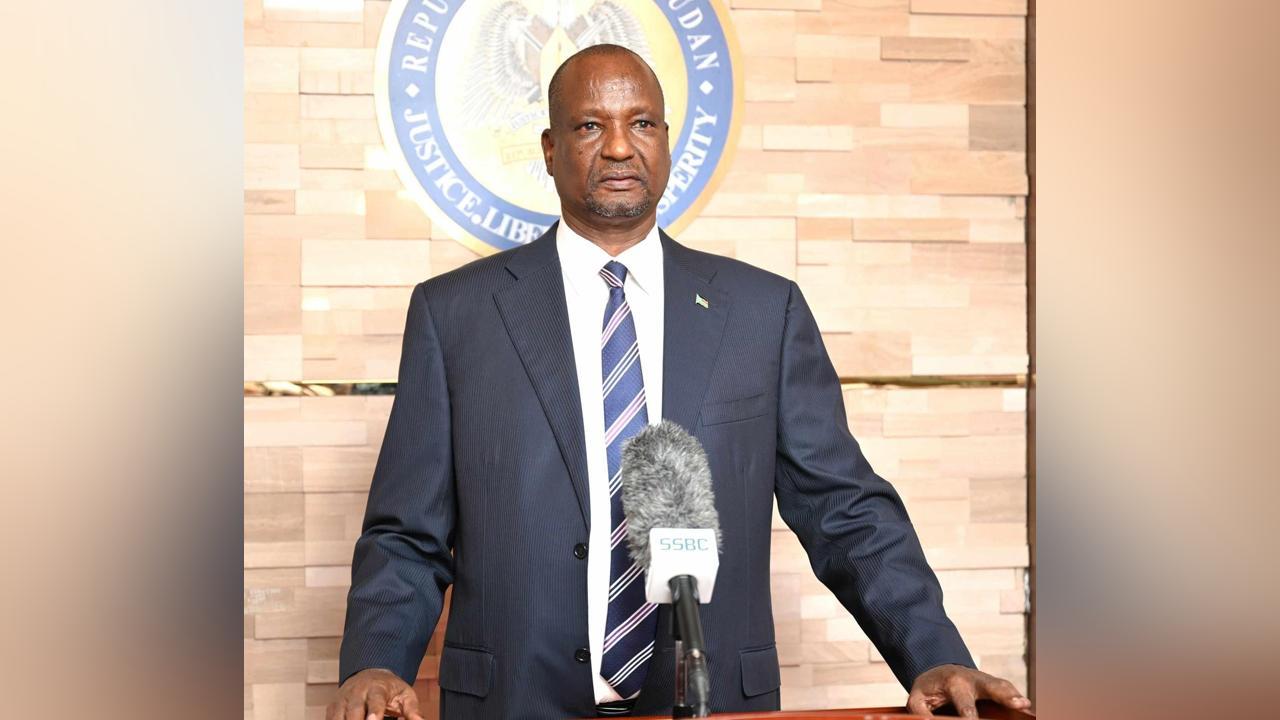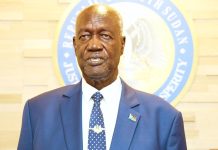Matik Kueth
Africa-Press – South-Sudan. South Sudan reaffirmed its commitment to rolling out infrastructural projects as part of its initiatives to spur economic growth.
The Vice President for Infrastructure Cluster, Taban Deng Gai, met President Salva Kiir on Monday to brief him on the progress of the on-going road construction in Bahr el Ghazal, Upper Nile and Equatoria regions.
Deng told the media that the government is focused on fixing the infrastructural gap that currently prevents smooth trade between urban and rural set ups.
He revealed that construction of the Juba-Bahr el Ghazal and Juba-Bor-Malakal Highways is progressing well, adding that the construction of roads in Equatoria would commence soon.
In the recently conducted National Economic Conference, the cluster of infrastructure that is steered by VP Taban Deng, was tasked with road construction to boost the country’s local trade and scale down on imports.
However, his assurance of the road construction projects come under the shadow of a recent damning audit report showing procedural errors in the award of contracts for the construction of the Juba-Terekeka Road.
The report, by the Auditor-General Stephen Wondu, which was tabled in Parliament last week, exposed flaws and delays in the construction of a 396-kilometre highway, with concerns ranging from improper public procurement procedures to a lack of oversight for the project, among others.
The audit’s purpose was to determine if the Ministry of Roads and Bridges had adhered to the necessary procedures and ensured the country paid reasonably for the project.
Amb. Wondu revealed that the contractor was not acquired through open competitive tendering but through single sourcing.
He said that the reason the Road Authority was not involved in the road construction was unclear, despite the fact that the project is to swallow $736,533,725 from the coffers when complete.
“There is risk that the quality of the road may be compromised when the Ministry of Roads and Bridges prepares the policies, standards, and specifications for road construction and again monitors and supervises the implementation of the road construction,” he stated.
He noted that the Ministry of Environment and Forestry was not initially involved in feasibility study for the construction and upgrading of Juba-Rumbek Road and as a result, “the design was inadequate and Hydrological information on the volume of water was missing in the feasibility study.”
He said, “Consequently, the river catchment areas along the route were grossly underestimated, As a result, the contractor installed inadequate drainage structures causing water accumulation near Bilpam, which eventually washed out a section of the road.”
The report stated that when the design was changed, the work had to equally stop and this later ballooned the resultant cost of the project by $25,408,025, raising the contract price from $711,125,700 to $736,533,725 (approximately over SSP700 billion).
He further explained that the Juba Rumbek Road has not been constructed within the agreed time. As at the time of audit in February 2023, only 63 kilometers, roughly 16 per cent of the whole work had been done. This left 333 Km or 84 %, for the remaining to be finished in 8 months.
Source: The City Review South Sudan
For More News And Analysis About South-Sudan Follow Africa-Press






